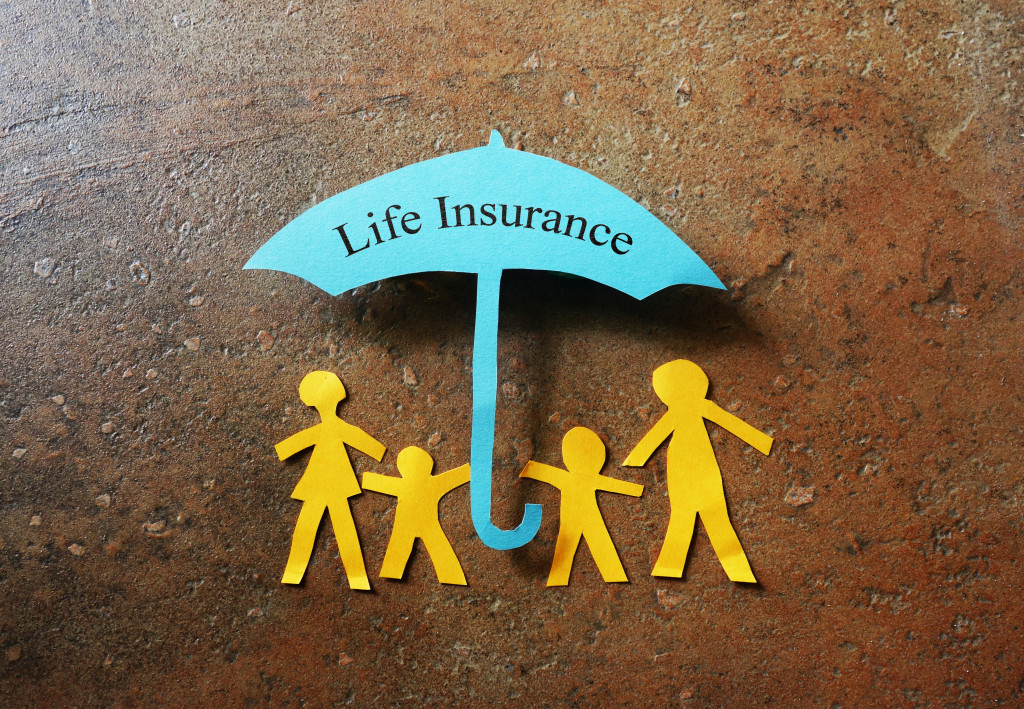Life insurance is a type of policy that provides financial benefits to the beneficiary in the policyholder’s death. It can provide peace of mind for those worried about their loved ones being left without any financial support after they’re gone.
But aside from your loved ones, it can also provide you financial security, knowing that your expenses will continue to be covered even if you get into an accident. It could also provide a financial cushion if you get sick and don’t have the appropriate health coverage.
Different life insurance policies offer various benefits to the policyholder, but not all of them are worth your time or money. There are also some factors that you should consider before purchasing one. Here are seven things to consider before buying life insurance, so you’ll know if it’s something you should invest in or not.

1. Your age and health condition
Life insurance is more expensive for older people than the average age, so you should get it when you’re young. It can also become more costly if your health condition worsens or you have a history of illness in your family.
So, if you frequent an urgent care center for your common colds or flu, or if you have a family history of heart disease, then it’s best to avoid life insurance. Or you could get supplementary health coverage instead. But if you can get life insurance before you develop any severe illnesses, then you’ll have the opportunity to get the cheapest policy for your age.
2. Your income
You should have life insurance if you have an income that others would miss after you’re gone because it can provide financial security even when you’re no longer around. But this doesn’t mean that you’ll automatically get one just because you make money.
It depends on your expenses, debts, and other financial obligations. This means that you need to consider the upcoming costs after your death before getting a life insurance policy. If you’re starting in your career and don’t have many obligations beyond your mortgage, credit card debt, and car loan, then it might not be best to get a life insurance policy yet.
3. How it will be paid out to your beneficiaries
Different life insurance policies offer various benefits to the policyholder when they die. For instance, term life insurance provides a lump-sum payment immediately after passing away. At the same time, permanent life insurance only pays off when you reach retirement age or when you cash in your policy.
You have to decide which of these will benefit your loved ones the most. By doing so, you’ll know if your beneficiaries will be satisfied with the amount they receive after you’re gone.
4. Your current financial obligations
You should get life insurance if you have significant debt that would be hard for your family to pay off without assistance, like student loans and mortgages. But don’t get it if you’re trying to get out of debt because it can have tax implications.
This is because a life insurance policy is a type of asset, and if you have a lot of them, you could lose your eligibility for financial aid. There are also some cases where beneficiaries are taxed on the amount they receive because it has been considered an asset.
5. Retirement savings
Life insurance can be used to fund your retirement, but that’s only advisable if you don’t have the necessary funds for it at the moment or if doing so will provide more benefits to your family members. It could also be a good idea if you’re self-employed or unemployed.
By getting a life insurance policy, you’ll also be able to gain access to other forms of savings like 401(k) plans, Roth IRAs, and other retirement accounts because you can borrow money from it at a low-interest rate.
6. Your final expenses
If you have an outstanding debt with high-interest rates, it’s wise to get life insurance because you can use your death benefits to pay it off, and your loved ones won’t have to deal with the consequences of not doing so. It could also be used for estate taxes or funeral costs if needed.
But if you’re already trying to get rid of some debts, you might not want life insurance because it’s just another type of debt. If you have a high-interest rate loan, even if it’s unsecured, then it could be better to pay that off before taking out a life insurance policy.
7. Your current insurance coverage
Suppose you have a life insurance policy that offers benefits in case of death. In that case, it’s advisable not to get another one because if something happens to you, your survivors will receive double benefits.
You also have to consider the tax implications when getting a new one. However, this doesn’t mean that you can’t get a second one if your family needs the benefits.
If you’re still unsure whether to get life insurance, then you have to weigh your options carefully. You have to consider many factors before getting a policy, and it’s best to consult an expert, so you’ll know if it’s the right choice for you.

